We thought you might appreciate some SCOBY visuals, so here is a second post showing the results of our kombucha experiment in photo form; photos taken of each kombucha at days 7, 14, 21 and 28. BUT before we dive into our kombucha exposé, be reminded that Jo and I will be holding our first live Q and A session for paid subscribers on Friday 14th February at 1 pm, here on Substack. Join us with your ferment-related questions, or if you think you might have forgotten them by then, you can always send them to us via Substack direct message and we will compile the list for answering…Ok, now back to kombucha!
The Method
To recap… 16 commercial kombuchas, plus our own, were used as “backslop” to see whether they had what it took to start a new batch of kombucha when added to sweetened tea. The hypothesis was that a traditional kombucha would grow a new SCOBY with a concomitant reduction in pH and final kombucha taste, whereas kombuchas where processing was applied wouldn’t.
Sample by sample, here are the results, patiently and rigorously recorded by Jo!
LA Brewery
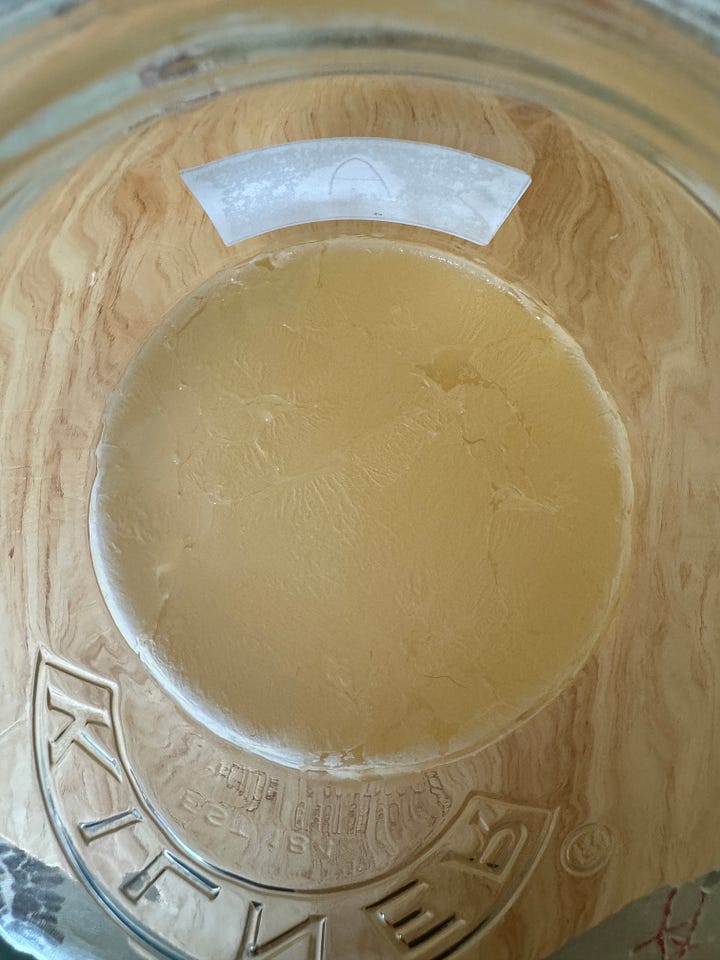
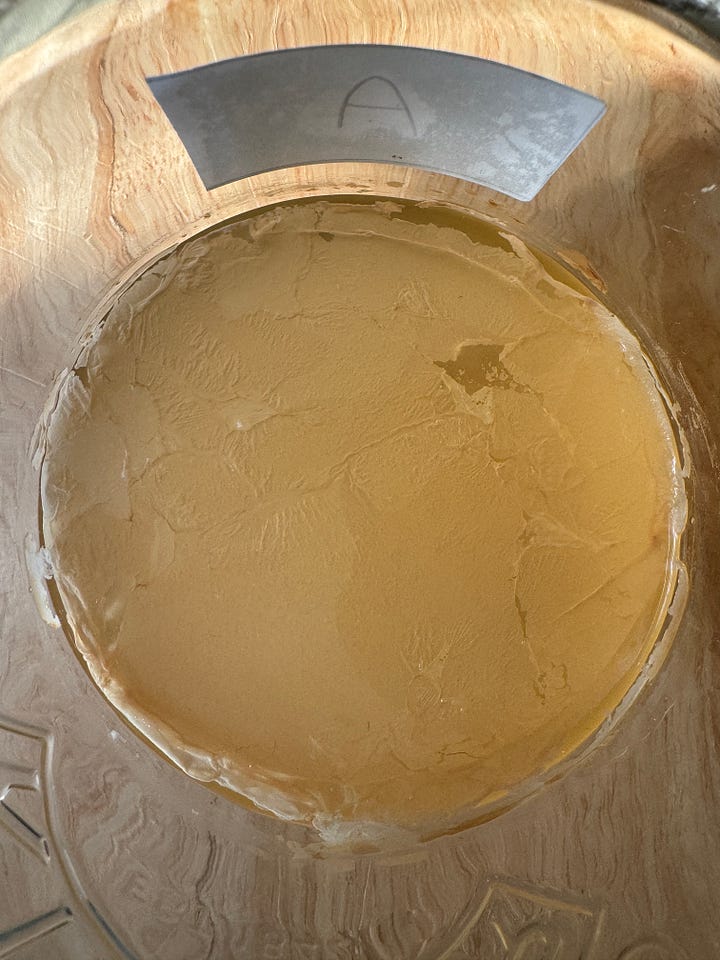

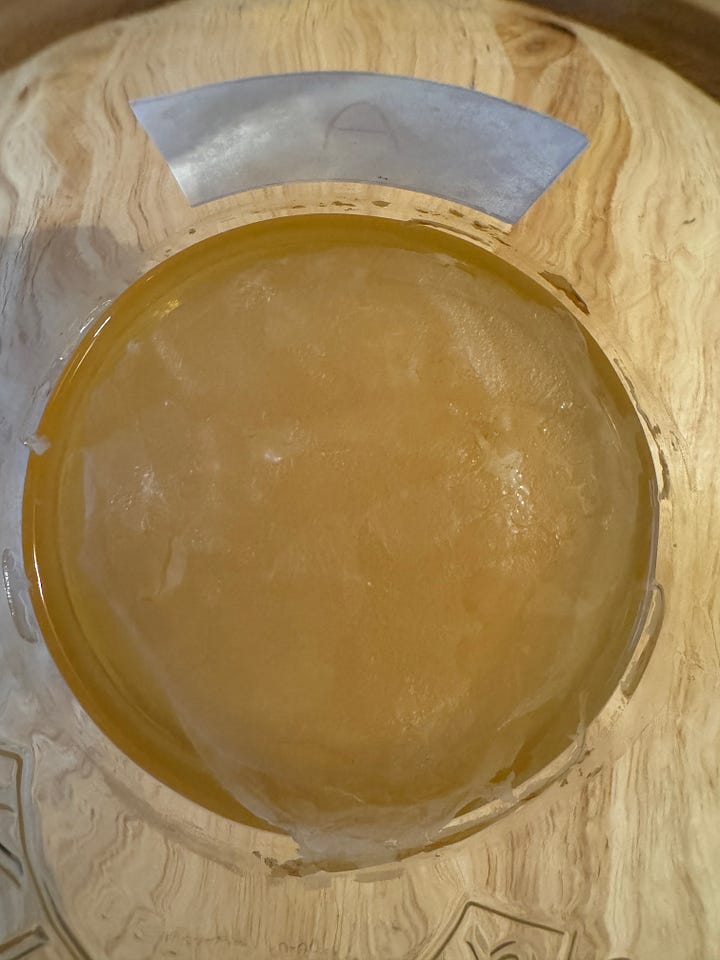
After 4 weeks, a fine cellulose SCOBY had developed - as the yeast are filtered out, a depleted SCOBY is to be expected. It developed kombucha flavour and acidity.
Summary: traditionally brewed, filtered, non-alcoholic, no artificial sweeteners or flavourings, assume force carbonated. In bottles. Not suitable for starting your own kombucha.
Good for a celebration - their champagne style kombuchas are delicious.
Pret A Manger
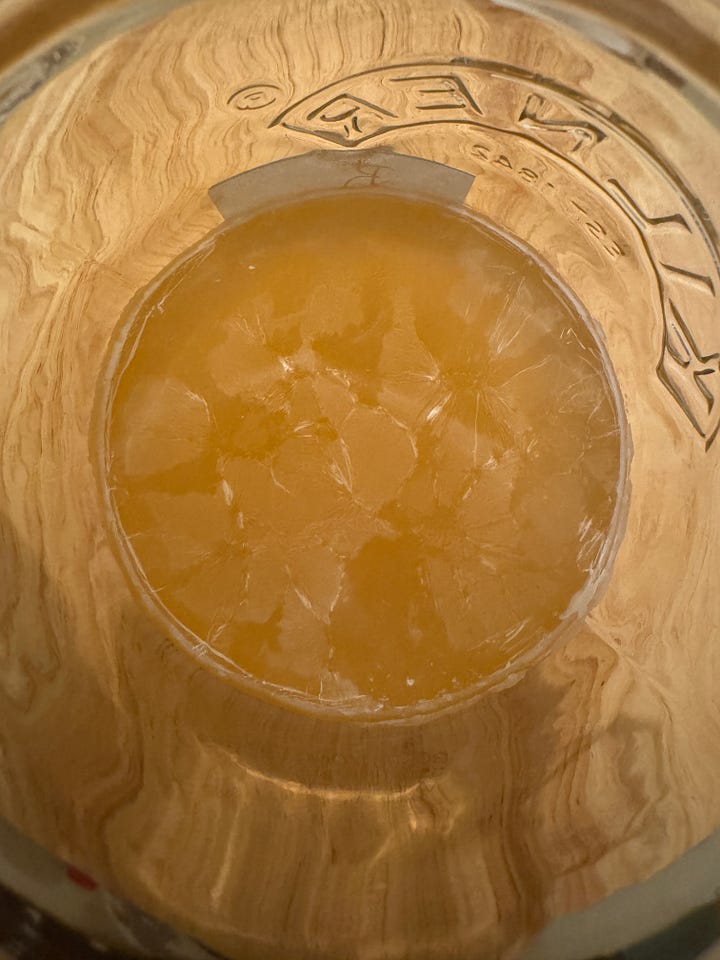

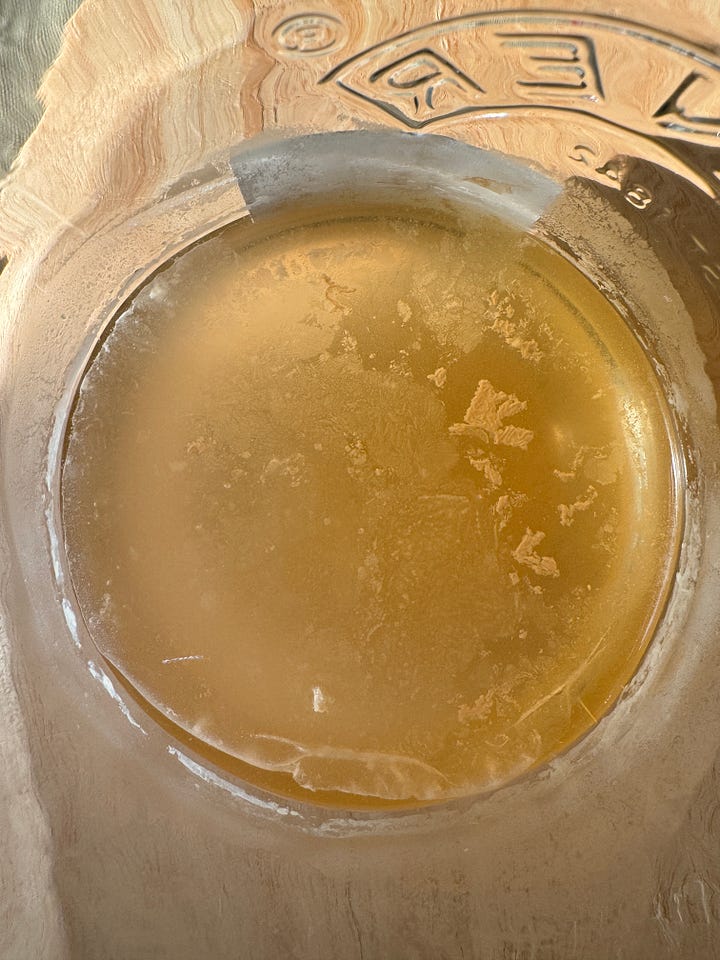

After 4 weeks, a fine cellulose SCOBY had developed, as they didn’t reply to our questionnaire we can only surmise that they have filtered out the yeasts. It developed kombucha flavour and acidity, but was very sweet.
Summary: filtered, non-alcoholic, no artificial sweeteners or flavourings. Assume force carbonated. Not suitable for starting a home brew. In cans.
Drink this if you’re in Pret and don’t mind 11g sugar per can. It’s still better than coke.
Hip Pop
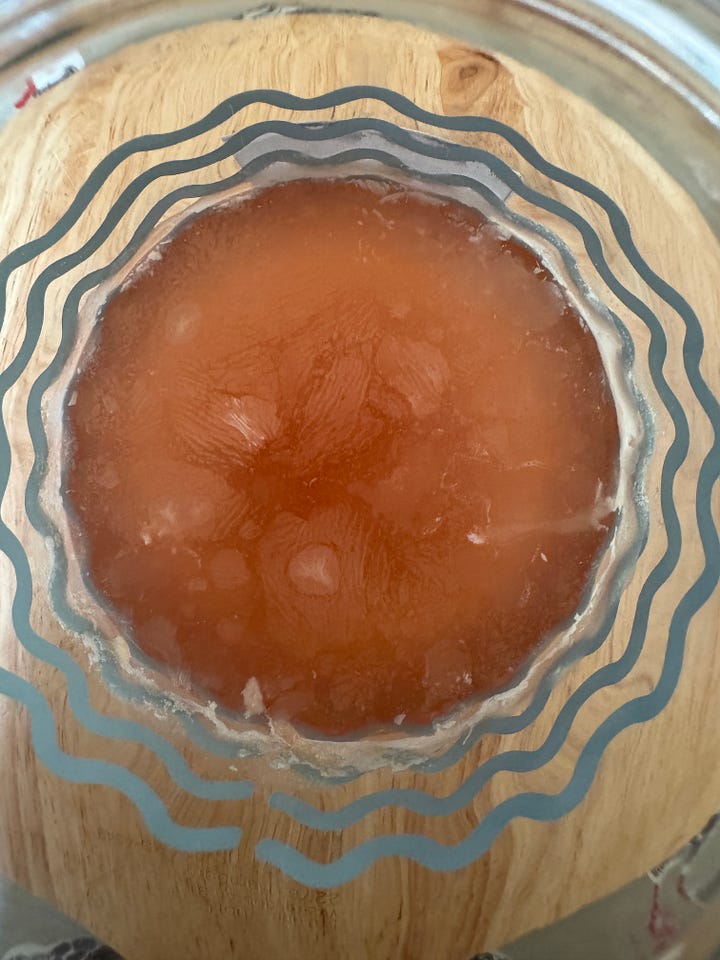

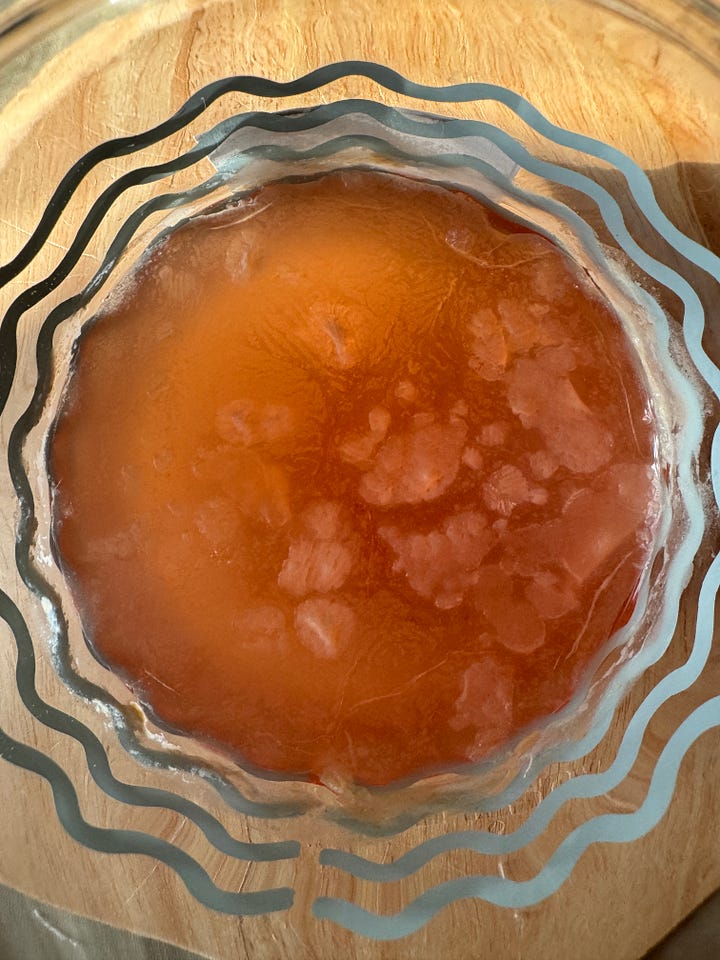
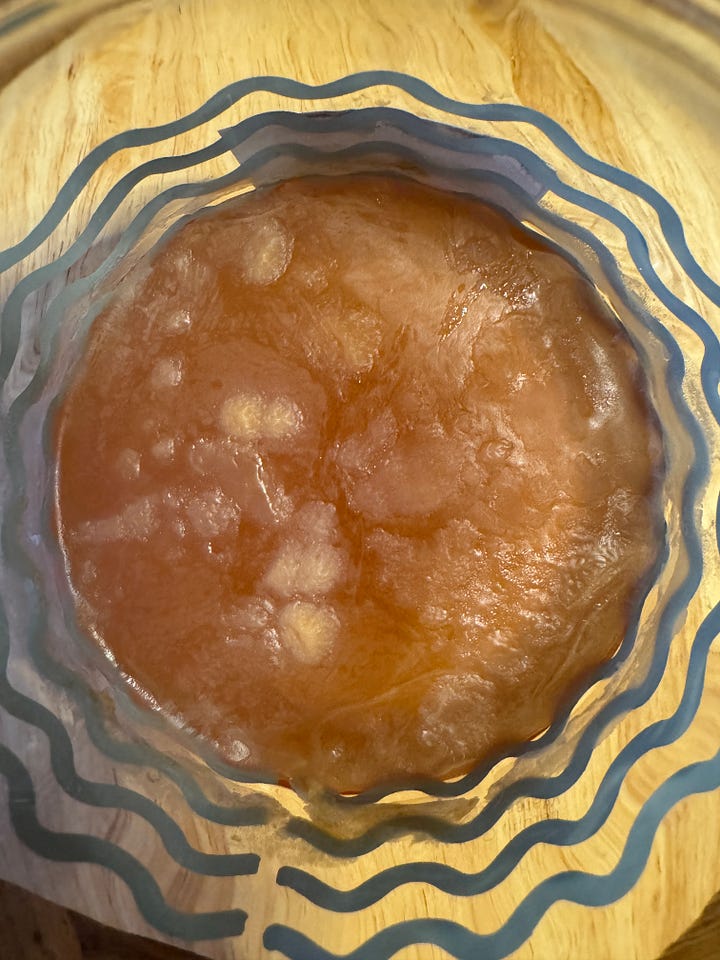
After 4 weeks, a very fine cellulose SCOBY had developed - as the yeast are filtered out, this is to be expected. It developed kombucha flavour and acidity, but not typical - perhaps due to fermentation by the added B. coagulans. In cans.
Summary: filtered, pasteurised, force-carbonated, non-alcoholic, low sugar, added B. coagulans
Drink this if you like your kombucha to taste less kombucha-ish, for stability and lower sugar content, and if you want some probiotics.



